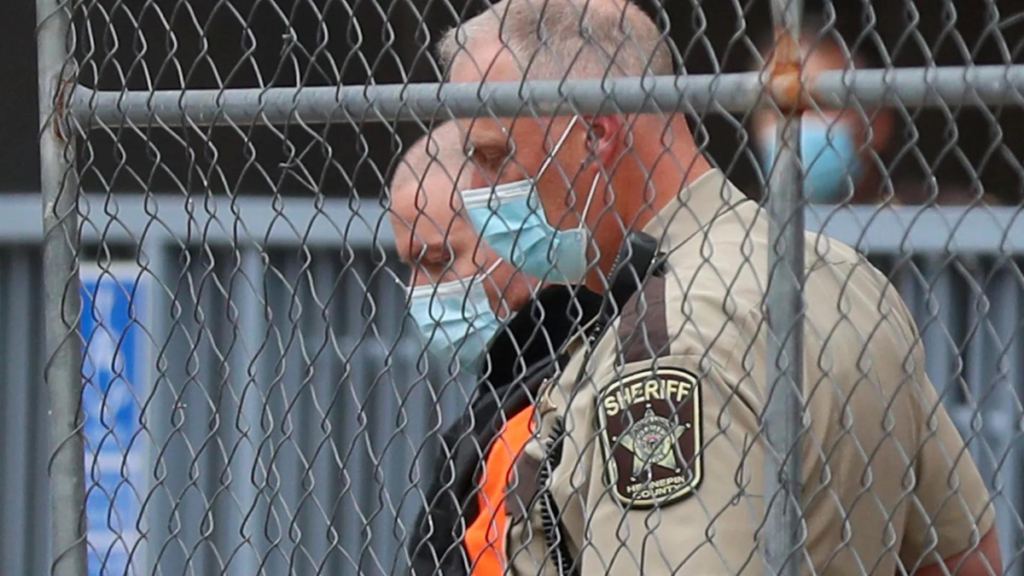Former Minneapolis police officer Derek Chauvin, known for his role in the 2020 killing of George Floyd, was reportedly assaulted in a federal prison in Arizona. The incident has sparked investigations by the FBI and the Bureau of Prisons. Chauvin, who was convicted on state charges of second-degree unintentional murder, third-degree murder, and second-degree manslaughter, was sentenced to 22 and a half years in prison. He later pleaded guilty to federal charges of violating Floyd’s civil rights, receiving a 21-year sentence. Chauvin’s legal battles have continued, with the U.S. Supreme Court rejecting his appeal regarding his state conviction, emphasizing the importance of due process and fair trial procedures. The assault on Chauvin raises questions about the safety and security of high-profile inmates within the federal prison system, drawing attention to the challenges of managing individuals with public notoriety.
The Assault Incident
Derek Chauvin was assaulted on Friday at the Federal Correctional Institution in Tucson, Arizona, according to a reliable source. Although Chauvin is reported to be in stable condition after the assault, the incident has prompted investigations by the FBI offices in Phoenix and Minneapolis. The Bureau of Prisons confirmed the assault, stating that an incarcerated individual was assaulted at approximately 12:30 p.m., subsequently receiving life-saving measures before being transferred to a hospital.
Chauvin’s attorney, Greg Erickson, is working on confirming the details surrounding the assault. The Bureau of Prisons did not disclose the identity of the assaulted individual but two sources have confirmed that it was indeed Derek Chauvin.
Chauvin’s Legal Battle
Derek Chauvin’s legal troubles have continued even after his high-profile trial. In April 2021, he was convicted on state charges of second-degree unintentional murder, third-degree murder, and second-degree manslaughter for George Floyd’s death. Subsequently, Chauvin was sentenced to 22 and a half years in prison. Later, he pleaded guilty to federal charges of violating Floyd’s civil rights, receiving a 21-year sentence. Chauvin’s attempt to overturn his federal conviction, citing new evidence, adds complexity to an already contentious legal saga.
Background on Chauvin’s Conviction
The catalyst for Chauvin’s legal battles was the killing of George Floyd on May 25, 2020. Chauvin, a White police officer, knelt on Floyd’s neck and back for more than 9 minutes while Floyd, a 46-year-old Black man, pleaded for his life. The incident, captured on video, sparked widespread protests against racial injustice and police brutality, not only in the United States but globally. The Minnesota Department of Human Rights later revealed a pattern of race discrimination within the Minneapolis police department.
Supreme Court Rejection and Public Sentiment
Chauvin’s legal challenges reached the U.S. Supreme Court, which recently rejected his appeal regarding his state conviction. The Court’s decision, made without comment or a recorded vote, affirmed the lower court’s verdict, emphasizing the importance of due process and fair trial procedures. Public sentiment remains divided, with some viewing Chauvin’s assault as an unsettling aspect of the broader issues within the prison system, while others may see it as a form of retribution for his actions.
Implications and Questions
The assault on Derek Chauvin raises significant questions about the safety and security of high-profile inmates within the federal prison system. The incident draws attention to the challenges of managing individuals with public notoriety, and it may prompt a reevaluation of protocols to ensure the well-being of all incarcerated individuals.
Conclusion
Derek Chauvin’s assault in a federal prison adds another layer to the complex narrative surrounding his involvement in George Floyd’s death. As Chauvin continues to navigate legal challenges, this incident underscores the broader issues within the U.S. prison system and prompts reflection on the responsibilities of authorities to ensure the safety and security of all inmates, regardless of their notoriety.







